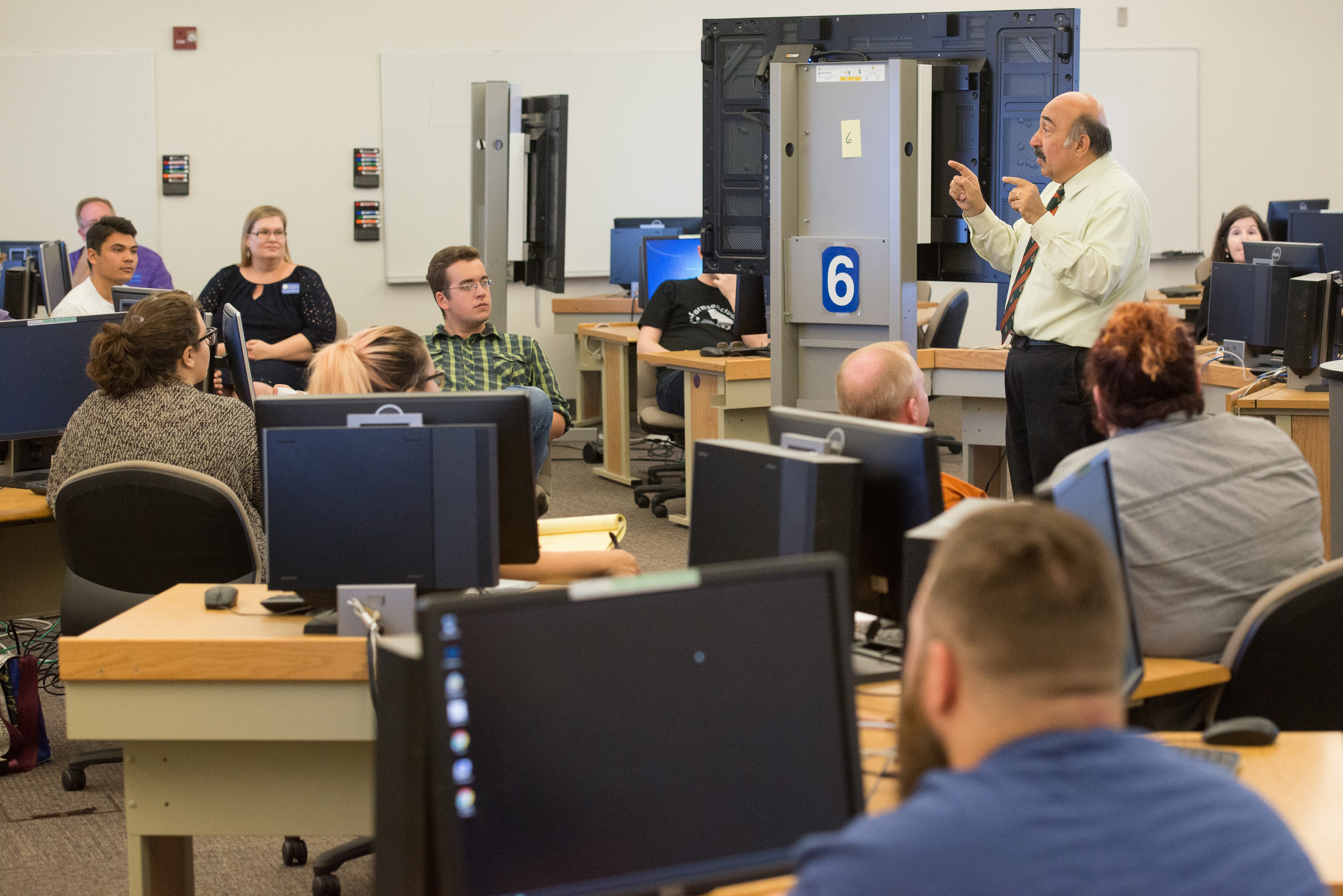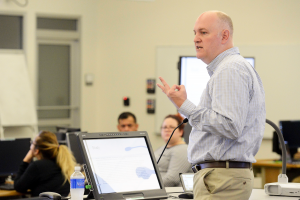Lecture Series Explores Data Analytics
Pensacola – The University of West Florida Department of Government recently presented “Data Dialogues,” a spring series of lectures focusing on data visualization and analysis in research across disciplines.

Data analytics involves examining raw data with the purpose of drawing conclusions about that information. It is widely used in policymaking and strategic planning across a variety of industries including government, the nonprofit sector, health care and business to allow organizations and individuals to make informed decisions. In academic work, data analytics is used mainly in the natural, social and formal sciences to verify or disprove existing models or theories.
The lectures took place in the UWF Data Analytics Lab in Building 79, Room 171 on the University’s Pensacola Campus. The lab was established in 2015 to give students practical experience in problem solving using teamwork, modeling and analysis.
“It’s a collaborative space where interdisciplinary groups can come together,” said Dr. Michelle Williams, UWF professor and chair of the Department of Government. “Data comes alive in new ways, which is exciting, and students see real-world applications of data they can use to solve problems.”

In the initial dialogue, Dr. Brian Hood, assistant professor and program director in the Department of Philosophy, discussed modeling data and its use in studying behavioral sciences. Dr. Jerry Johnson of the Department of Teacher Education and Education Leadership delivered the second lecture, called “Utilizing Extant Data Sets,” and Dr. Raid Amin, of the Department of Math and Statistics, gave the third lecture. Amin talked about perseverance and offered tips for obtaining hard-to-find data sets.
“It doesn’t matter what field you are in, you are going to be working with data,” Williams said.
Williams also said data analytics is a growing and important skill set in the job market. With more data available to business, government and nonprofit organizations than even before, the demand for people equipped to analyze and interpret it has never been higher.
The government department will resume the “Data Dialogues” lecture series in the fall and invites students, faculty and community members to participate.



